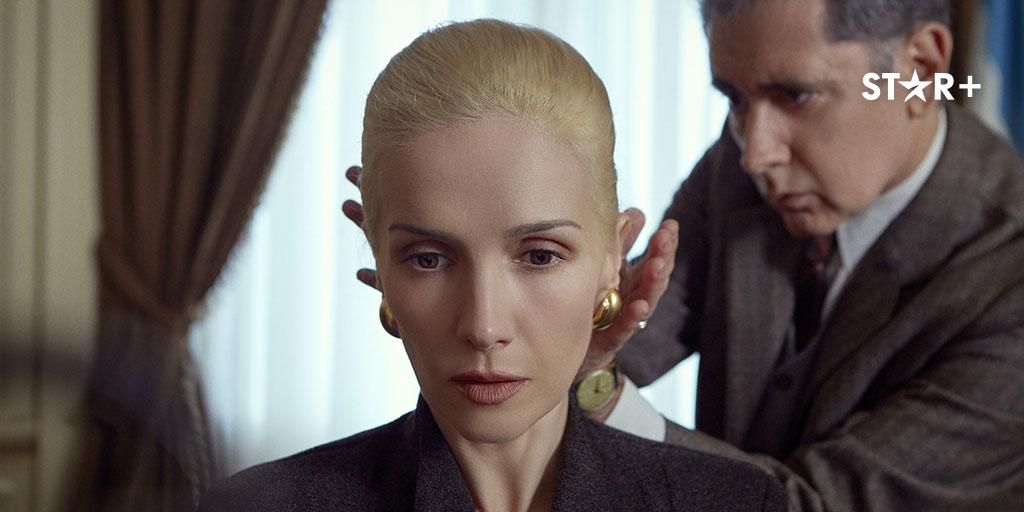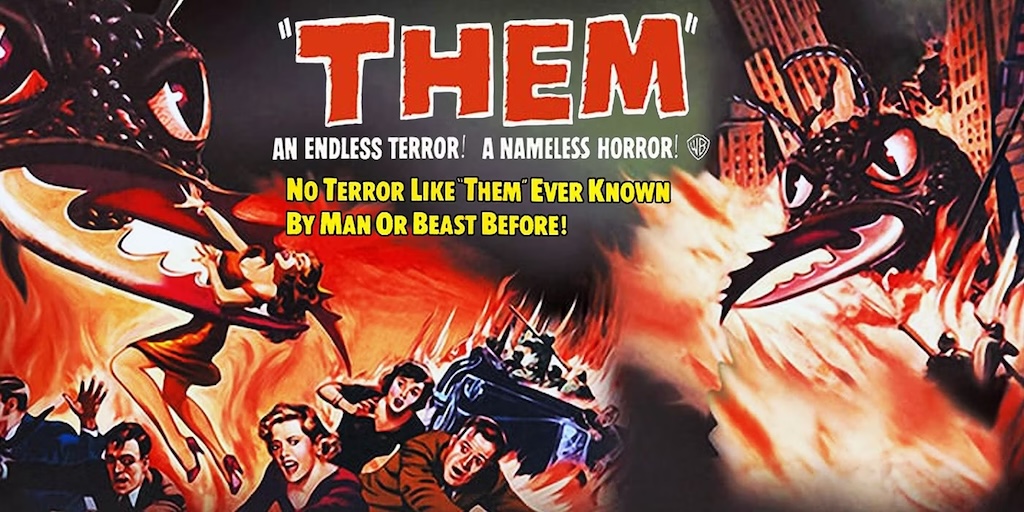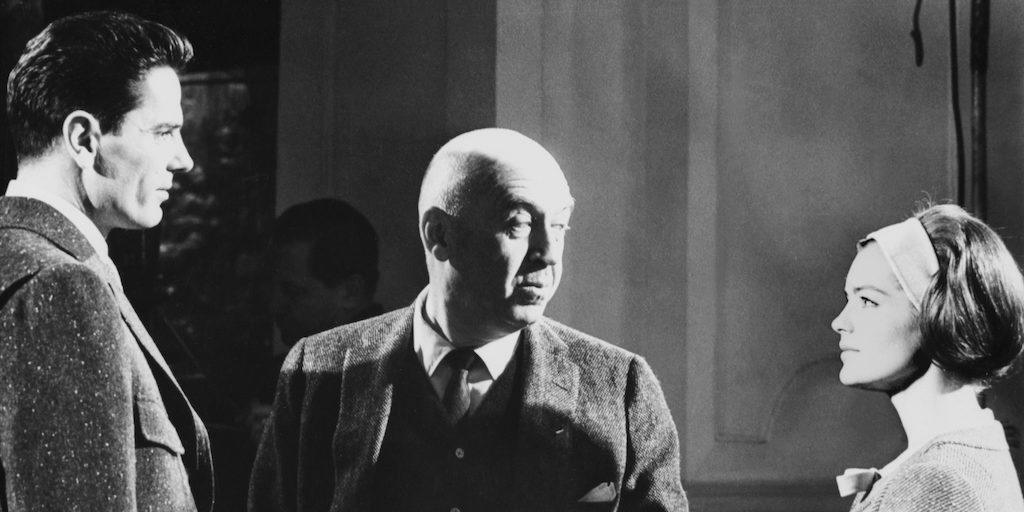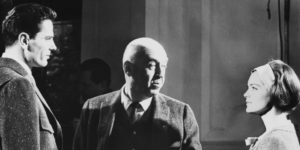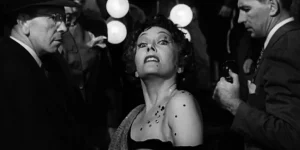THE FLATNESS
In one of the passages of the novel Santa Evita by Tomás Eloy Martínez, the following can be read:
If history is – as it seems – another of the literary genres, why deprive it of imagination, inanity, indelicacy, exaggeration and defeat, which are the raw material without which literature cannot be conceived?
This paragraph is one of the many moments in the novel where the writer exhibits his own impossibilty to describe the real Evita. One of the reasons is that Eloy Martínez himself seems to distrust any type of version that has been written about her. Hence, also that the novel Santa Evita is, among other things, the confession of a disoriented writer before a figure that exceeds him in what she was capable of generating both in life and -above all- after death. Santa Evita is not, therefore, a Peronist or anti-Peronist work, but a novel where the focus is the narrator’s own viewpoint, in the face of a historical movement that he looks at with a mixture of fascination and mistrust.
The Santa Evita series is clearly another topic. It is narrated in seven episodes, and it splits its whole plot into three different times: that of the living Eva Perón, who rises from poverty to become the most powerful woman in the country; the years after her death, when her embalmed body was moved from one place to another; and another in the 1970s, previous to Perón’s arrival in Argentina, where a journalist tries to find out about the whereabouts of said body while trying to confirm if it is true that it would be returned to Perón himself.
The extremely conflictive and controversial president is interpreted by Darío Grandinetti, in a failed interpretation, laughable at times, partly due to the bewildering apathy that characterizes -one involuntarily assumes- the actor’s performance, and partly also due to a rather unwise makeup job.
Even so, that performance may hide a secret and welcome ambition. Taking a historical figure known even by his critics for his charisma and magnetic style and turning him into a grim and contained character is still a way of wanting to find a different spin on the Perón that was seen so many other times. From this standpoint, Oreiro’s interpretation, although more natural, is much less interesting. Her Evita is the Evita that we have seen too many times: the sensitive one with a strong but fair character, who loves Peronism and above all what she calls her “grasitas“. That Evita is not so similar to those played by actresses with strong looks and hard features like Madonna, Esther Goris or Faye Dunaway; Rather, it seems to obey a stamped Evita, that of the good fairy that the series wants to reaffirm in almost all the scenes in which she features. Also, by the way, Evita, who has spanned decades for the series and continues to constantly question us not only because of what she represents, but also because of the supposedly sinister nature of those who attack her. In the last episode there is even the following dialogue between the aforementioned journalist and Eva Perón’s stylist.
-How strange it is to move with such urgency for someone who died 19 years ago
-But after everything you’ve heard, don’t you realize how alive she is? Look, for many of us, even those of us who don’t believe in God, she is a saint. She was a woman of character, of convictions. And also of deep contradictions. But I think she became a saint because her death was so unfair.
-For some.
-It is true. For others, justice was done. And it eliminated a problem for them.
The moment in which that is heard is quite unusual. First of all because it seems inserted into the plot to be able to elaborate a defining speech about the character (which is already quite childish and irritating), but secondly because, although it is clear to us throughout the series why Evita (or at least this Evita) has character and deep convictions, it is practically impossible to see any of those deep contradictions that her stylist comments on. There is hardly an episode- one of the most interesting in the series – where this Evita has an unpleasant attitude in the Eva Perón foundation that makes her tyrannical, and where her excessively personal way – I would say clientelistic in reality, but I do not think that the series intended to express that – of engaging in politics can hide a secret and calculated staging.
As for the rest, the series even leaves out some of the darkest sides of the historical figure (acknowledged, I believe, even by the majority of Peronists) and even grossly misrepresents historical facts to give this Evita the place of a representative of early feminism.
So much love for the flawless Evita could not fail to be accompanied by the display of the facts known to all: her very humble origins, her acting vocation, her encounter with Perón during the event for the earthquake in San Juan, her resignation from the vice presidency, her cancer and ensuing agony. All scenes that contribute to the insistence of a stiff Evita, made of fixed landmarks that we have heard even in the most elementary television reports about her.
Not only that: as in this series everything must be stressed time and again, the journalist in the third chronological line of the story is in charge in some conversations of adjusting the facts, explaining what happened and how things came to pass, even clarifying what is taken for legend and what for fact, in a series that always makes clear to us what is a hallucination or a distorted point of view and what we should take as true.
What is curious is that this is based on a novel that openly mixes fiction with reality, and that asks us over and over again to distrust the veracity of what we are reading.
Santa Evita -the series- transforms that ambivalence, that story traversed by a confused subjectivity, into a political fiction that is very sure of itself. It constructs not only an impeccable Evita but -and this is inevitable after all- enemies that have almost no nuances, perverse beings who hate Evita for their heartless militaristic spirits, frustrated people who in more than one case feel an unspeakable attraction to that Evita they despise for not being able to possess.
The intention that their hatred be focused on them and only them is evidenced by the fact that even those who assault them through attacks or even intimidating phone calls are offscreen. A way that this series has of not giving those who exercise violence against them a face that could arouse antipathy, a feeling that the series only seems to reserve for Perón and Evita’s enemies.
So much need for caricature ends up showing a key defect in Santa Evita: the impossibility of the series to make a genuinely political fiction.
And here lies the heart of the problems, not only in Santa Evita but in almost any Argentine fiction that wants to venture into this field. Instead of making political fictions, they end up making partisan fictions, which need, one way or another, to modify the historical reality, not to develop an interesting story (which is inevitable), but to make the side they want to be on very clear. They are incredibly precarious products in terms of their concepts, to which the ambivalent terrain of politics is completely elusive and whose militant spirit works, basically, as pure and simple militancy does: shouting simple slogans in a hollow way, without asking too much about the complexities of the case and impregnating everything with ideology which, as Joan Didion once said, is the enemy of all art.
![]()
(Argentina, 2022)
Direction: Rodrigo García, Alejandro Maci. Cast: Natalia Oreiro, Darío Grandinetti, Diego Velázquez, Diego Cremonesi, Ernesto Alterio.

